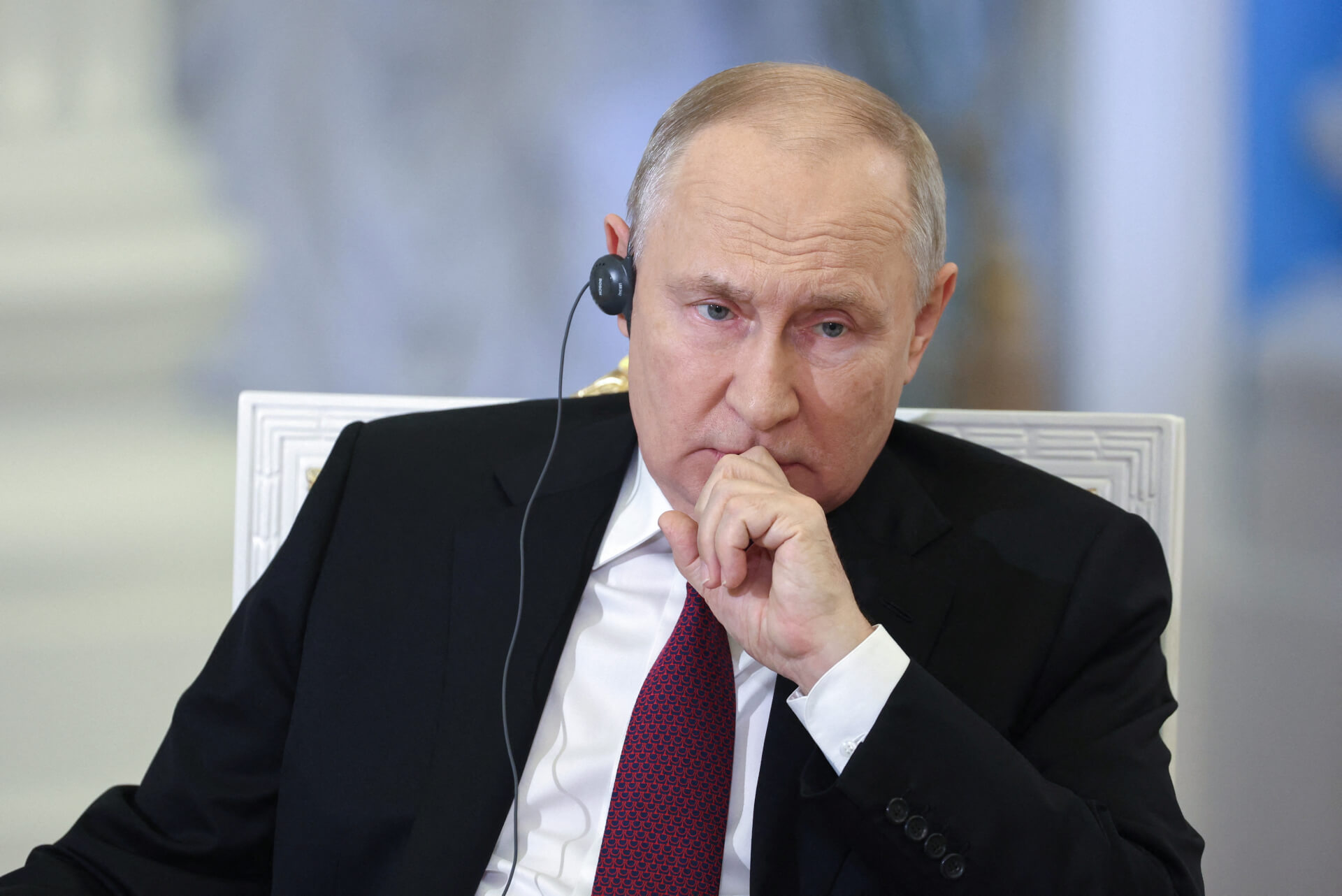Russian President Vladimir Putin on Monday had phone conversations with the leaders of Israel, Iran, Egypt, Syria and the Palestinian Authority, with a primary focus on resolving the rapidly escalating Palestinian-Israeli conflict.
The Kremlin stated that Putin reaffirmed Russia’s commitment to cooperate towards “ending the Palestinian-Israeli confrontation and achieving a peaceful settlement through political and diplomatic means.”
Prime Minister Netanyahu spoke today with Russian President Putin.
— Prime Minister of Israel (@IsraeliPM) October 16, 2023
The PM made it clear that Israel had been attacked by brutal and abhorrent murderers, had gone to war determined and united, and would not stop until it had destroyed Hamas's military and governing capabilities.
Putin’s Conversation with Israeli PM Benjamin Netanyahu
In his telephone conversation with Israeli PM Benjamin Netanyahu, Putin expressed his sincere condolences to the families and friends of the Israeli victims and emphasised his complete opposition and condemnation of any acts that result in civilian casualties, particularly women and children.
Additionally, Putin outlined Russia’s efforts to help normalise the situation, prevent further escalation of violence, and avert a humanitarian crisis in the Gaza Strip.
Russia’s core commitment to continue working through political and diplomatic methods to end the Palestinian-Israeli conflict and achieve a peaceful solution was reiterated, the readout stated.
Conversations with Leaders of Iran, Syria, and Egypt
Putin also had phone conversations with Syrian President Bashar al-Assad, Iranian President Ebrahim Raisi, Palestinian Authority President Mahmoud Abbas, and Egyptian President Abdel Fattah El-Sisi.
As per the readout of the calls, the parties expressed serious concern about the escalation of hostilities in Gaza, resulting in a catastrophic surge of civilian fatalities and a worsening humanitarian crisis.
The leaders unanimously agreed on the importance of promptly ceasing hostilities and establishing a humanitarian truce to provide immediate assistance to those in need.
🇷🇺🇸🇾🇮🇷🇵🇸🇪🇬 President Putin spoke over the phone with President of Syria Bashar al-Assad, President of Iran Ebrahim Raisi, President of Palestine Mahmoud Abbas & President of Egypt Abdel Fattah el-Sisi.
— MFA Russia 🇷🇺 (@mfa_russia) October 16, 2023
The focus was on the Palestinian-Israeli conflict.
🔗https://t.co/YgHeogETd7 pic.twitter.com/cbJpQPaiEE
Putin listened to his counterpart’s perspectives and assessments, which highlighted the severity of the humanitarian situation in Gaza and the necessity to lift the blockade to expedite the delivery of medicines, food, and other essential supplies.
The readout stated, “Serious concerns were voiced about the possibility of the conflict evolving into a regional war.”
Here too, Putin stressed the unacceptability of using any kind of violence against civilians and expressed Russia’s sincere condolences to all those affected, as well as the relatives and friends of those killed during the fighting.
In Putin’s conversation with El-Sisi, the topic of Egypt helping evacuate Russian and CIS people from the Gaza Strip was also addressed.
According to the readout, the Russian side accentuated its commitment to coordinating efforts with all constructive partners to end hostilities and stabilise the situation.
Consequently, Russia submitted a draft resolution to the UN Security Council (UNSC) calling for an “immediate, balanced, and non-politicised ceasefire.”
UNSC rejects Russian resolution for humanitarian ceasefire in Gaza#Russian Ambassador Vassily Nebenzia said after the vote that #Russia regrets the #UNSC has found itself a hostage to the West's ego. #Gaza #Palestine https://t.co/4r6KQEYl6h
— Al Mayadeen English (@MayadeenEnglish) October 17, 2023
UNSC Rejects Russian Proposal
The UNSC has rejected Russia’s proposal for a resolution to the Israeli-Palestinian conflict, as reported by TASS.
The proposal’s five votes, cast by Russia, China, the UAE, Gabon, and Mozambique, were insufficient to pass. The UK, the US, France, and Japan rejected the proposal, while Albania, Brazil, Ecuador, Ghana, Malta, Switzerland, and Ecuador abstained.
Following the decision, Russia’s UN representative, Vasily Nebenzya, called the Security Council a “hostage to the ambitions of Western countries.” “This is the only reason why it failed to send a clear and strong collective signal aimed at de-escalating the situation,” the diplomat asserted.
The US voted against the draft resolution because it did not denounce Hamas, as stated by US representative to the UN Linda Thomas-Greenfield. Before the vote, Nebenzya told reporters that the Russian proposal did not include the radical group because Moscow was focused on humanitarian issues.

